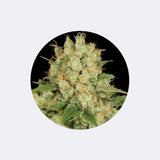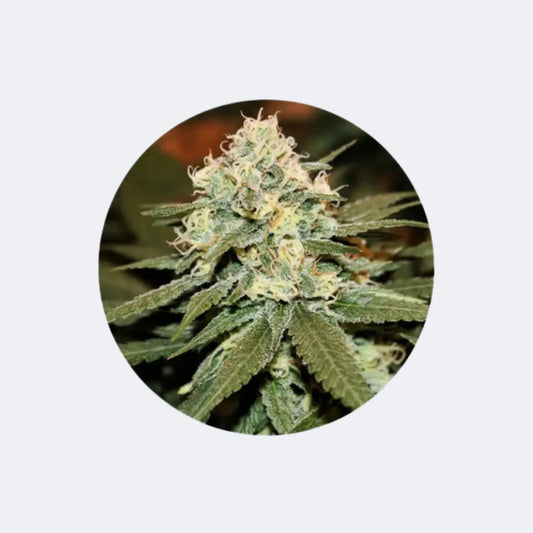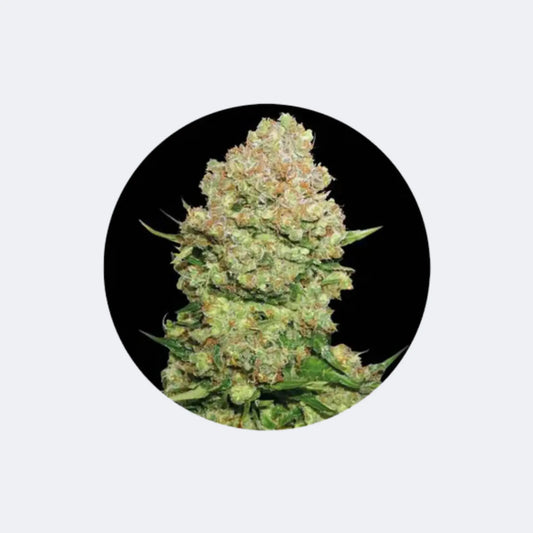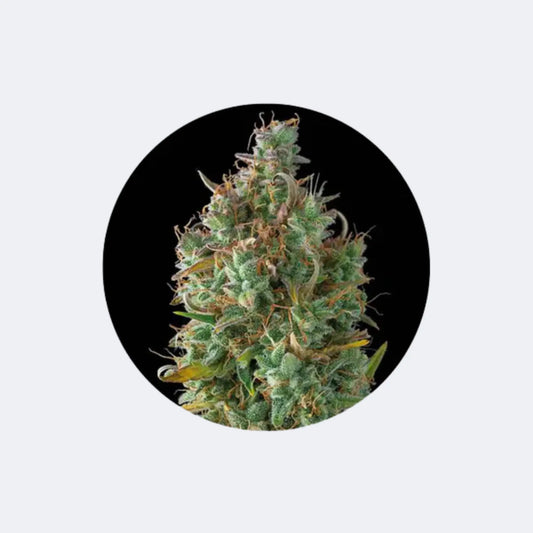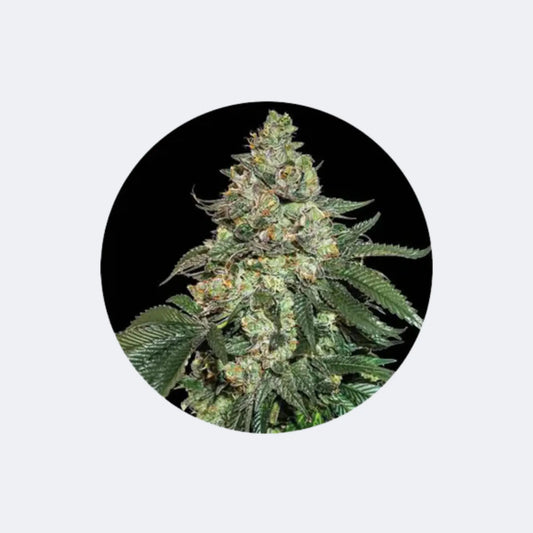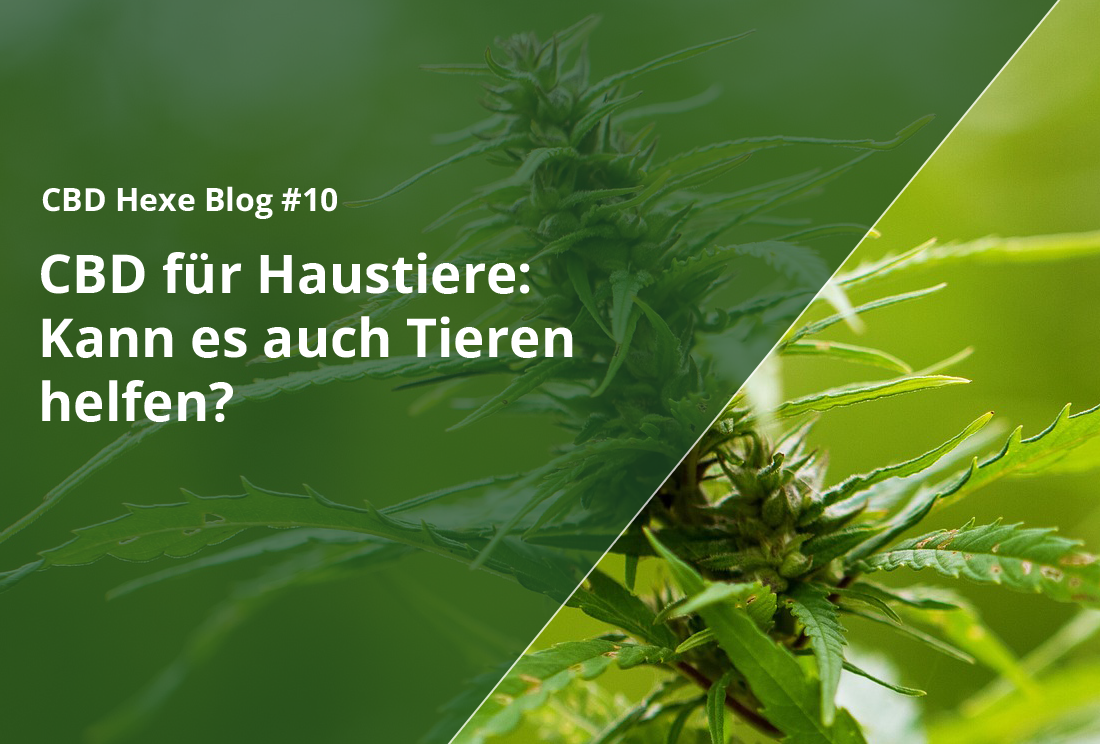
CBD for pets: Can it help animals too?
Maximilian BruderShare blog post
CBD for animals: effects, use, and tips for dogs and cats
Description:
Learn everything about using CBD for animals. How does it work for dogs and cats, which CBD oil is best suited, and how long does it take to take effect? Plus: Can you give your four-legged friend the same CBD oil you give yourself? Find out here!
Introduction
- What is CBD and why is it relevant for animals?
- Overview: CBD use in pets
How does CBD work in animals?
- General mode of action of CBD
- Differences in effects between humans and animals
- Possible benefits and side effects
Which CBD oil for animals?
- Criteria for choosing the right CBD oil
- Differences between CBD oil for humans and animals
- Recommended brands and products
How long does it take for CBD to work on dogs?
- Factors that influence the duration of action
- Average duration of action in dogs
- Instructions for use and dosage for dogs
How long does it take for CBD to work on cats?
- Factors that influence the duration of action in cats
- Average duration of action in cats
- Instructions for use and dosage for cats
Can I give human CBD to my dog?
- Comparison: CBD for humans vs. animals
- Possible risks and side effects
- Recommendations and advice on use
Conclusion
- Key findings from the article
- Personal recommendations and tips
- Encouraging the safe and informed use of CBD in animals
Introduction
CBD, or cannabidiol, has gained considerable popularity in recent years – and not just among humans. More and more pet owners are wondering whether CBD could also be beneficial for their four-legged friends. But what exactly is CBD? Why might it be relevant for animals? In this post, you'll get a comprehensive introduction to the world of CBD for animals. From how it works and choosing the right CBD oil to specific application recommendations for dogs and cats – you'll find all the important information here. So, let's dive in and learn everything there is to know about using CBD for pets!
How does CBD work in animals?
General mode of action of CBD
CBD, also known as cannabidiol, is one of the many compounds found in the cannabis plant. It is non-psychoactive, meaning it doesn't produce feelings of "high" like THC, found in the same plant. Instead, CBD interacts with the mammalian endocannabinoid system (ECS). This system is present in both humans and animals and plays a key role in maintaining homeostasis in the body. Here are some points about how CBD works:
- Interaction with receptors: CBD does not bind directly to the main receptors of the ECS, CB1 and CB2, but rather modulates them. This can help influence various processes in the body.
- Anti-inflammatory effect: One of the most well-known effects of CBD is its anti-inflammatory property, which can help with pain and other inflammation-related conditions.
- Calming effect: In some animals, CBD can have calming effects, especially in stressful or anxiety-provoking situations.
Differences in effects between humans and animals
While the endocannabinoid system is present in both humans and animals, there are some differences in how CBD works in different species:
- Metabolism: Animals, especially smaller ones like cats and dogs, often have a faster metabolism than humans. This means they may process CBD more quickly and experience a faster onset of effects.
- Dosage: Due to size and metabolism, the effective dosage of CBD for animals may be different from that for humans.
- Sensitivity: Some animals may be more sensitive to CBD. Therefore, it is important to start with a low dose and observe the animal's reaction.
Possible benefits and side effects
The use of CBD in animals, as in humans, has both benefits and potential side effects.
Advantages :
- Pain relief: CBD can help relieve pain in animals, especially that associated with inflammation or age-related conditions.
- Reducing anxiety: CBD can have a calming effect on animals prone to anxiety or stress.
- Promoting well-being: Overall, CBD can help increase an animal’s overall well-being and quality of life.
Possible side effects :
- Dry mouth: Some animals may experience increased thirst when taking CBD.
- Lowering blood pressure: High doses of CBD can lead to a temporary drop in blood pressure.
- Drowsiness: Especially at higher doses, CBD can cause drowsiness in animals.
It is important to always observe your pet's individual needs and reactions and to consult a veterinarian if you are unsure.
Which CBD oil for animals?
Criteria for choosing the right CBD oil
Choosing the right CBD oil for your pet is crucial. There are many products on the market, and unfortunately, not all are of the same quality. Here are some criteria to consider when choosing:
- Purity: A high-quality CBD oil should consist of pure CBD and a carrier oil, without unnecessary additives or fillers.
- Full-spectrum vs. isolate: Full-spectrum oils contain all the cannabinoids, terpenes, and flavonoids of the hemp plant, while isolates contain only pure CBD. Full-spectrum oils are often thought to have an "entourage effect," in which the various components work synergistically.
- Third-party testing: A quality product should be tested by an independent laboratory to confirm its CBD content and the absence of contaminants.
- Origin of the hemp: Hemp grown organically and without the use of pesticides or herbicides is preferable.
Differences between CBD oil for humans and animals
Even though the basic ingredient, CBD, is the same in products for humans and animals, there are some differences:
- Additives: Some CBD oils for humans may contain additives or essential oils that can be harmful to animals.
- Taste and aroma: CBD products for animals are often formulated to be palatable to animals, while products for humans can have different flavors.
- Dosage: The concentration of CBD in pet products may vary to allow for easier dosing based on the pet's weight.
Recommended products
There are many trusted brands that offer high-quality CBD products for animals. I can recommend our own product:
- CBD Witch Animal Oil CBD: with salmon oil without terpenes, with 5% or 10% CBD
How long does it take for CBD to work on dogs?
Factors that influence the duration of action
The duration and onset of CBD's effects in dogs can be influenced by various factors. Some of these include:
- Dog's weight: Smaller dogs may respond more quickly to CBD than larger dogs.
- General health: A dog with a more active metabolism may be able to process CBD more quickly.
- Method of administration: CBD oil given directly into the mouth often works faster than treats or supplements that need to be digested first.
- Dosage: Higher doses may produce a more noticeable effect in a shorter time.
Average duration of action in dogs
Typically, CBD begins to take effect in dogs within 30 minutes to 1 hour after administration. However, this can vary depending on how the CBD is administered. When administered orally, meaning the CBD oil is placed directly into the dog's mouth, the effects can usually occur more quickly. However, if it is given with food or as a treat, it may take a little longer, as the CBD must first go through the digestive process.
Instructions for use and dosage for dogs
If you are considering giving your dog CBD, here are some general guidelines:
- Start with a low dose: For small dogs, a starting dose of 1-2 mg of CBD may be sufficient, while larger dogs may need 5 mg or more.
- Monitor your dog: After administering CBD, monitor your dog for changes in behavior, appetite, or general well-being.
- Increase the dose slowly: If you find that the initial dose is not producing the desired results, you can slowly increase the dose every few days.
- Consult a veterinarian: If you are unsure, it is always a good idea to consult your veterinarian, especially if your dog is already taking other medications.
It's important to emphasize that every dog is unique, and therefore there is no "one size fits all" when it comes to CBD dosage. What works for one dog may not work for another. It's always best to be cautious and observe your dog closely.
How long does it take for CBD to work on cats?
Factors that influence the duration of action in cats
In cats, the duration and onset of CBD effects also vary depending on various factors:
- Cat weight: Just like dogs, smaller cats may respond more quickly to CBD.
- General health: A cat with a stronger metabolism may respond more quickly to CBD.
- Method of administration: Oil drops placed directly into the mouth may produce a faster response than CBD-containing treats or food.
- Dosage: Similar to dogs, a higher dose may produce a faster and stronger response.
Average duration of action in cats
In general, cats are somewhat more sensitive to CBD than dogs. Therefore, the effects can often be observed within 20 to 40 minutes, especially when administered directly orally. However, when administered via treats or in food, as with dogs, it may take longer for a noticeable effect to occur, as the CBD must pass through the digestive tract.
Instructions for use and dosage for cats
If you are considering CBD for your cat, please note the following:
- Start low: Cats are often more sensitive to substances than dogs. A starting dose of 0.5-1 mg may be sufficient for many cats.
- Pay attention to your cat's response: Monitor their activity, eating habits, and any behavioral changes after administration.
- Increase: If you feel that your cat is responding well to the starting dose, you can carefully increase it every few days.
- Seek advice from a veterinarian: Especially when it comes to your cat's health, you should always consult a specialist if you are unsure.
Your cat's well-being should always be your top priority. Keep in mind that reactions to CBD can vary from animal to animal. It's worth being patient and attentive to find the optimal dosage for your cat.
Can I give human CBD to my dog?
Comparison: CBD for humans vs. animals
CBD is CBD—meaning the molecular structure of CBD oil produced for humans is exactly the same as that of CBD oil for animals. The main difference lies in the additional ingredients and additives often found in CBD products for humans.
While CBD oil for animals typically has minimal ingredients (often just CBD and a carrier oil), products for humans may contain additives such as flavorings, sweeteners, or other essential oils. Some of these additives can be harmful or toxic to dogs.
Possible risks and side effects
Giving human CBD products to dogs carries some risks:
- Toxic ingredients: Certain additives, especially certain essential oils and sweeteners (e.g. xylitol), can be toxic to dogs.
- Overdose: Since the dosage instructions on products for humans are often not suitable for animals, there is a risk of overdose.
- Unpredictable reactions: Since the products are not specifically designed for dogs, unwanted side effects may occur.
Recommendations and advice on use
If you are considering giving your dog CBD oil for humans, please consider the following advice:
- Check ingredients: Look carefully at product labels and make sure they do not contain any harmful additives.
- Adjust dosage: Start with a low dose and monitor your dog carefully for signs of overdose or side effects.
- Consult a veterinarian: If you are unsure, always ask your veterinarian for advice. They can also help you determine the correct dosage for your dog.
In general, it's always best to use CBD products specifically formulated for pets, as these are tailored to the specific needs and safety of pets. It may be tempting to share the same product, but your four-legged friend's health should always come first.
Conclusion
Key findings from the article
Through this article we were able to determine:
- CBD can have positive effects in both dogs and cats, but reactions can vary.
- It is crucial to choose the right CBD product for your pet and ensure that it is free from harmful additives.
- The duration of CBD's effects can vary depending on the animal, dosage and method of administration.
- It is risky to give CBD products intended for humans directly to animals without checking the ingredients and dosage.
Personal recommendations and tips
If you decide to try CBD for your pet:
- Always choose a high-quality product that is specifically designed for animals.
- Start with a low dosage and gradually increase it while observing your pet's response.
- If you have any uncertainties or questions, it is always advisable to consult a veterinarian.
Encouraging the safe and informed use of CBD in animals
In conclusion, I would like to emphasize the importance of being informed and mindful when incorporating CBD into your pet's care routine. The health benefits can be significant, but only when used correctly and safely. Don't be guided solely by trends; always research, ask questions, and act in the best interest of your four-legged friend. Because ultimately, they deserve only the best from us.
